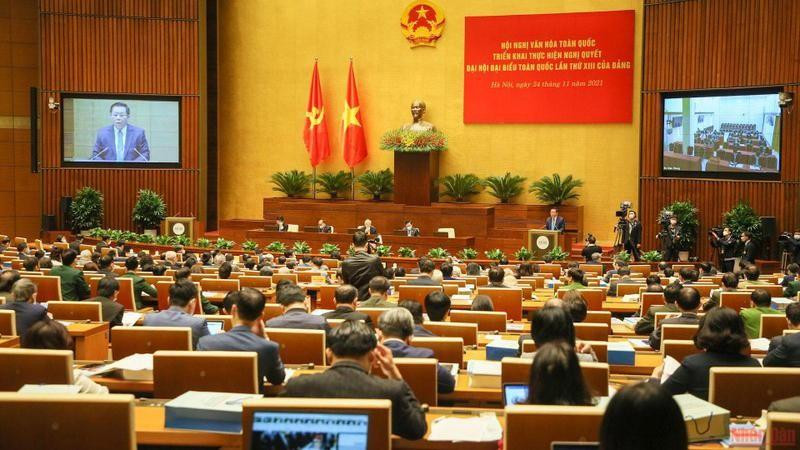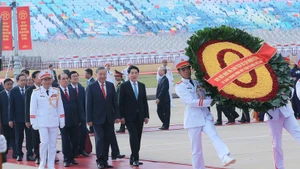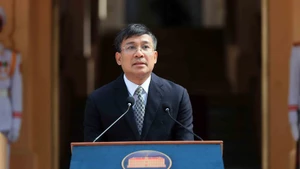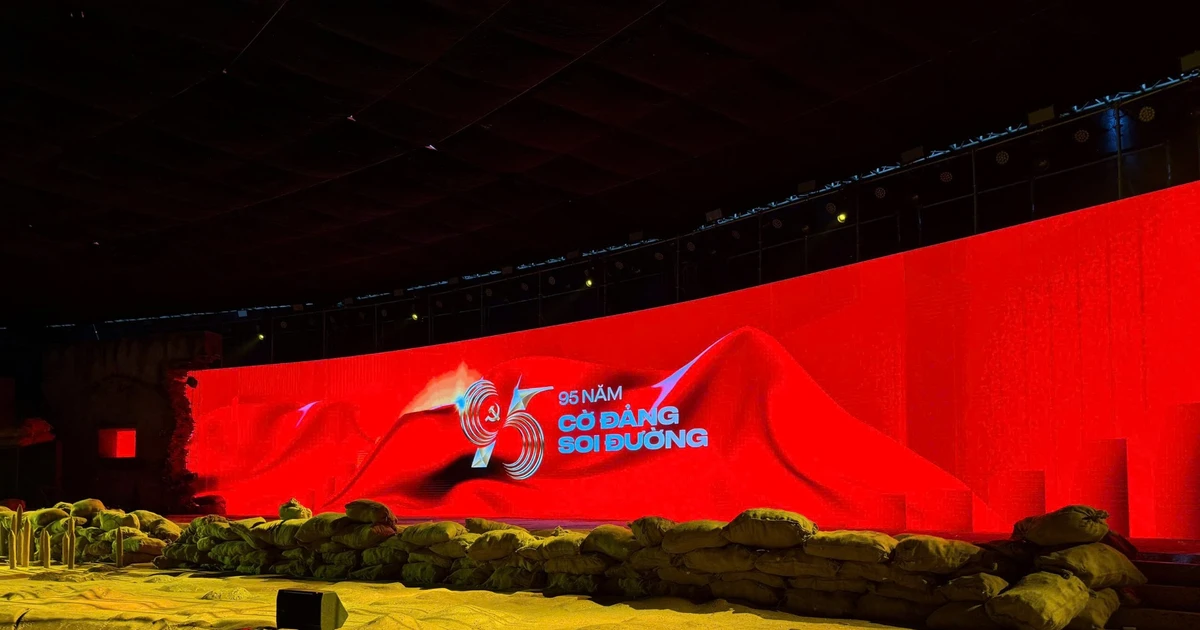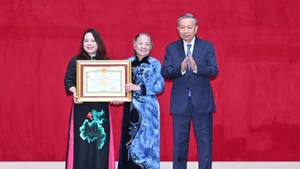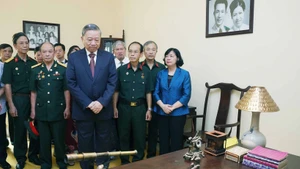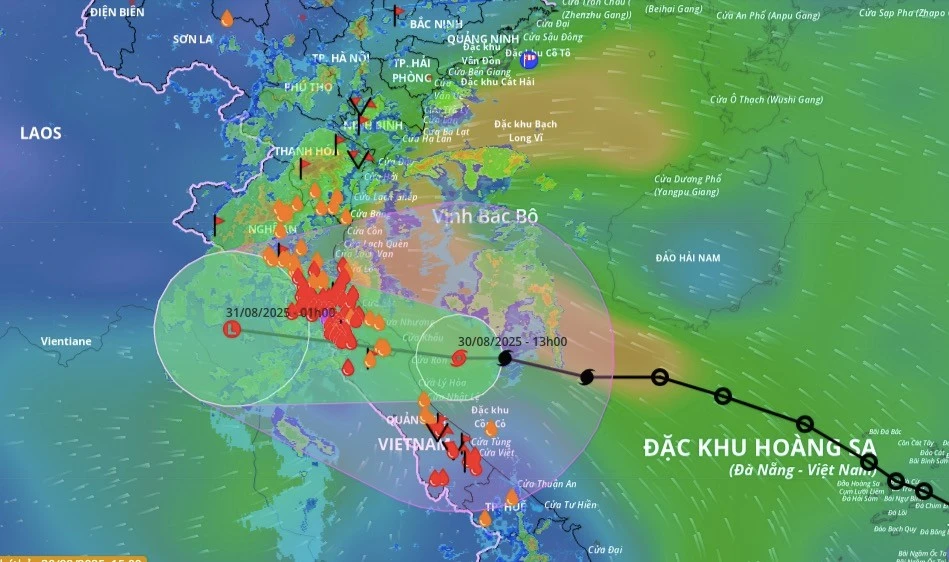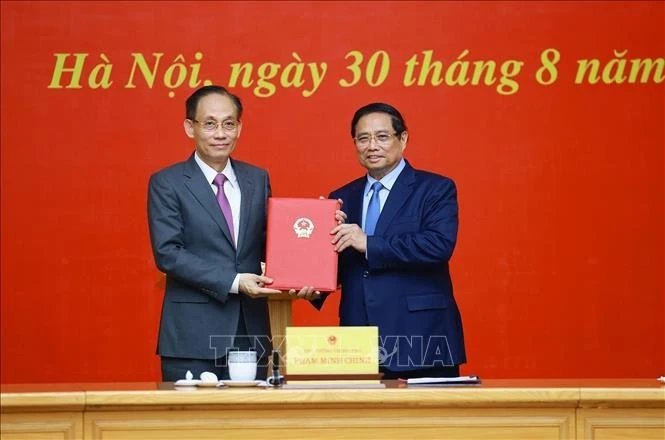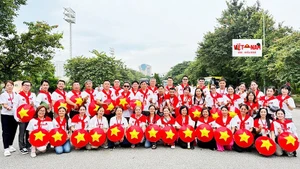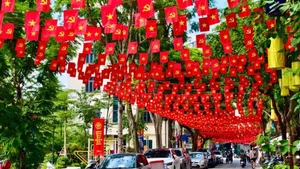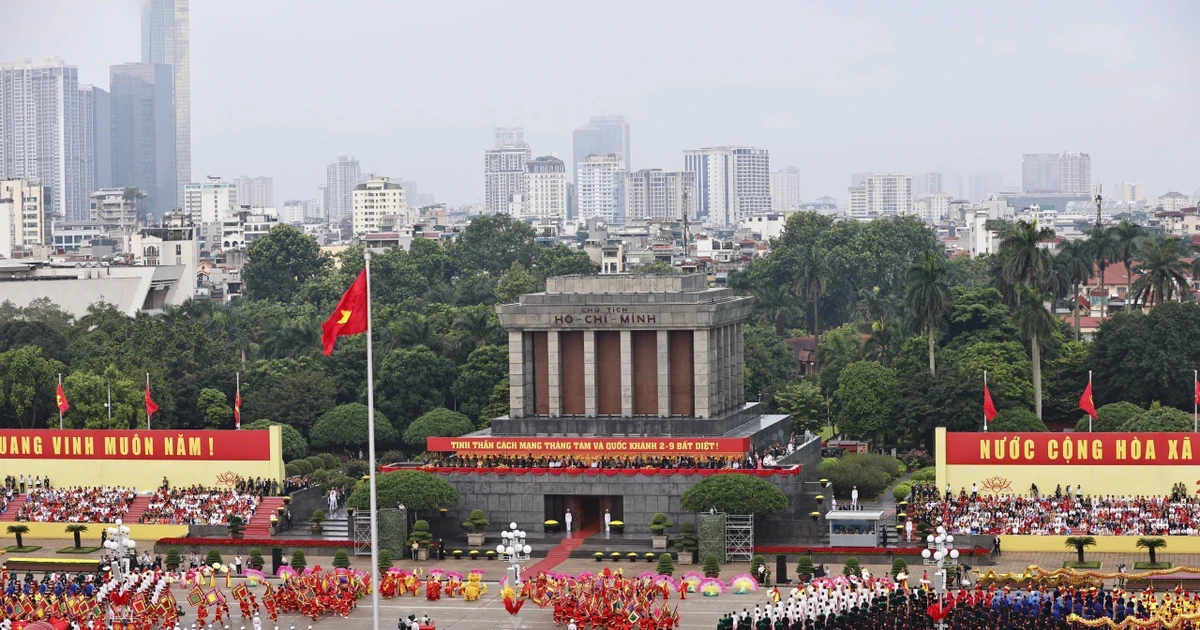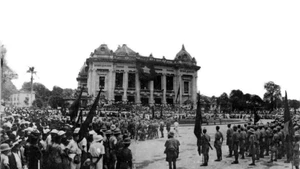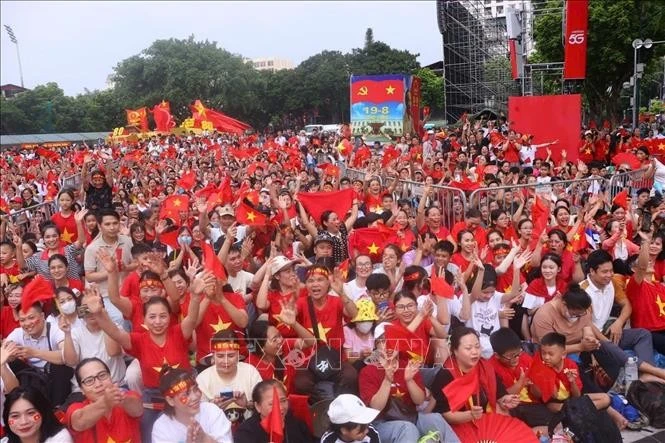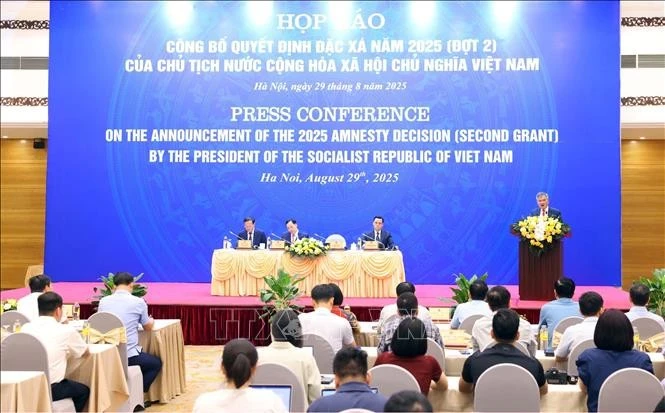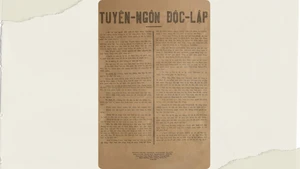At the National Cultural Conference held in November 2021, Party General Secretary Nguyen Phu Trong pointed out the focus on performing well, as one of the key tasks to build, preserve, revive and develop Vietnam’s culture. “Building Vietnamese people with appropriate standard values, in association with preserving and promoting the values of a Vietnamese family, cultural values and values of the nation, during the period of renewal, development and integration; skillfully combining traditional values with contemporary values: patriotism, unity, self-reliance, affection and gratitude, honesty, responsibility, discipline, and creativity. These values are nurtured by Vietnamese family culture with the core values of prosperity, happiness, progress and civilisation, which are developed by an advanced Vietnamese culture imbued with national identity, through the value systems: nation, democracy, humanity, and science, as well as on the basis of the national value systems. They are also the noble goal of our nation, towards peace, unification, independence, rich people, strong country, democracy, justice, civilisation, and happiness”, he noted.
To implement the Resolution of the 13th National Party Congress and the direction of the Standing Committee of the Party Central Committee (PCC) Secretariat, today, the PCC’s Commission for Information and Education, in collaboration with the Central Theory Council, Ministry of Culture, Sports and Tourism and Vietnam Academy of Social Sciences held a national hybrid seminar, on the value systems of the country, culture and family, as well as the Vietnamese human standard in the new period. The seminar focused on discussing the contents, key issues and basic elements of the above-mentioned value systems, thereby setting out orientations, viewpoints and solutions to build values and specific values and combine traditional and contemporary values to promote the development of all areas of social life, in the new era of the country.
In recent years, there have been many studies as well as different conceptions and uses of the concepts of value. The majority of comments sent to the national seminar said that values are "things, phenomena, processes or all that are considered by people to have a certain meaning, more or less, for the existence, movement and development of people and society”. Values are also “belief systems, standards, cosmological views of ethnic communities and groups, are cultural conceptions of the goodness, importance or aspiration, towards which members of a cultural tradition, ethnic group or social group desire”. In particular, “national value system is the typical synthesis with the highest generalisation that have characteristics of a nation”.
A value system in common sense is the connection and synthesis of specific values that are different or similar into a system, foundation and standard for evaluating things, phenomena, and behaviours in social life. Over the past thousands of years of national construction and defence, Vietnamese people have created many different value systems.
However, values and value systems are not immutable quantities but can change over time and circumstances. The value system resources will bring into play their endogenous strength to serve social progress and national development if they are exploited and arise. On the contrary, good and superior value systems may be lost if they are not promoted and maintained and bad values will multiply, spread, and even destroy the good values that have been accumulated for thousands of years.
Realizing the importance of this issue, the 11th Party Central Committee issued Resolution No.33-NQ/TW in 2014, on building and developing Vietnamese culture and people, to meet the requirements for the sustainable development of the country. Following five years of implementation, Politburo issued Conclusion No.76-KL/TW dated June 4, 2020, on continuing to implement Resolution No.33-NQ/TW. The conclusion clearly showed that besides the remarkable achievements, there are still many limitations and weaknesses in the cause of building and developing Vietnamese culture and people. “The building of a cultural value system and Vietnamese standard value system in the period of industrialisation, modernisation and international integration, has not yet achieved the set target. Morals and lifestyles are worrisomely degraded.”
The document of the 13th National Party Congress also defined that in the near future, it is essential to focus on researching, defining and deploying the building of a national value system and cultural and human standard value systems, while developing the Vietnamese family value system in the new period. In addition, it is necessary to strive to gradually overcome the limitations of the Vietnamese people that existed in history, build the Vietnamese people in the new era and closely and harmoniously link traditional and modern values.
Therefore, the current task is to urgently study and build the values and value systems of Vietnam, in which the building of human standards must be placed at the centre because after all, people play a decisive role in forming, nurturing and promoting the best values and value systems for the social progress and development of the country.
In addition, the building of the right values and value systems will orient the balanced and sustainable development of many areas of social life. It is the basis for fighting against standard deviations anti-value behaviours and uncultured actions that degrade trust and make people disoriented and follow bad habits and vices, leading to loss of human values and dignity. The study and building of Vietnam's values and national value system is an important and urgent requirement in the current period and the new development phase of the country with a social-oriented modern market economy and during the process of industrialisation, modernisation and international integration.
In recent years, there have been a lot of studies and basic contents about values and value systems in the fields of culture, family, community and human standards in Vietnam. However, many people think that the research results only raise issues and suggest content on values without concluding with high consensus and necessary legal value.
Specifically, new studies have mentioned "general value system", "original value system" and "mainstream value system", but not yet "specific value system", "feminist value system", etc, that will be more suitable for each object, class, profession and age in society.
Therefore, this national hybrid seminar is of particular importance for the participation of representatives of leaders from central commissions, ministries and agencies, scientists, cultural experts and famous artists, in inheriting existing results to concretise the contents and elements of the national value system, cultural value system, family value system and Vietnamese human standards in the new era. They provided directions, tasks and solutions for relevant stakeholders to practically contribute to the implementation of the Resolution of the 13th National Party and the conclusion of Party General Secretary Nguyen Phu Trong, at the National Cultural Conference in November 2021.
It is hoped that following the national seminar, each value system will be gradually concretised into detailed, appropriate and feasible contents and criteria, thereby they can be carried out with high consensus among scientific researchers and leaders, the support and response from people from all strata, contributing to the country’s sustainable development in the new era.
